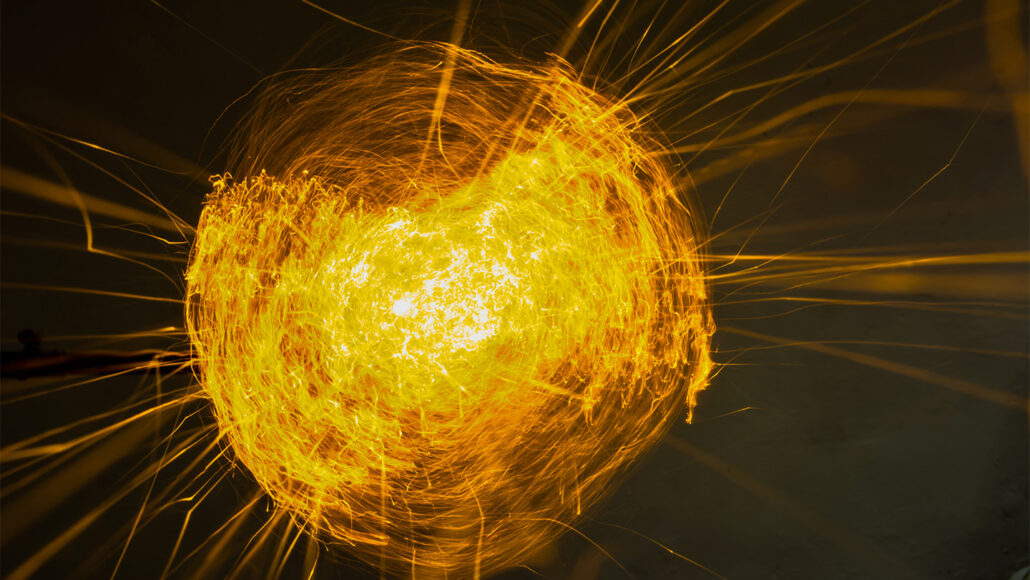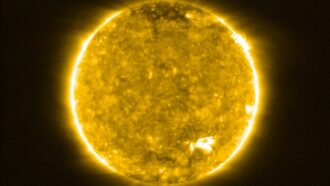antimatter: Molecules formed by atoms consisting of antiprotons, antineutrons, and positrons.
black hole: A region of space having a gravitational field so intense that no matter or radiation (including light) can escape.
electron: A negatively charged particle, usually found orbiting the outer regions of an atom; also, the carrier of electricity within solids.
equation: In mathematics, the statement that two quantities are equal. In geometry, equations are often used to determine the shape of a curve or surface.
gravity: The force that attracts anything with mass, or bulk, toward any other thing with mass. The more mass that something has, the greater its gravity.
mass: A number that shows how much an object resists speeding up and slowing down — basically a measure of how much matter that object is made from.
matter: Something that occupies space and has mass. Anything on Earth with matter will have a property described as "weight."
particle: A minute amount of something.
physics: The scientific study of the nature and properties of matter and energy. Classical physics is an explanation of the nature and properties of matter and energy that relies on descriptions such as Newton’s laws of motion. Quantum physics, a field of study that emerged later, is a more accurate way of explaining the motions and behavior of matter. A scientist who works in such areas is known as a physicist.
positron: A subatomic particle with the mass of an electron, but a positive electrical charge. It is the antimatter counterpart to the electron. So when electrons and positrons collide, they annihilate each other, releasing energy.
quantum physics: A branch of physics that uses quantum theory to explain or predict how a physical system will operate on the scale of atoms or sub-atomic particles.
relativity: (in physics) A theory developed by physicist Albert Einstein showing that neither space nor time are constant, but instead affected by one’s velocity and the mass of things in your vicinity.
theoretical: (n. theory) An adjective for an analysis or assessment of something that based on pre-existing knowledge of how things behave. It is not based on experimental trials. Theoretical research tends to use math — usually performed by computers — to predict how or what will occur for some specified series of conditions. Experimental testing or observations of natural systems will then be needed to confirm what had been predicted.









